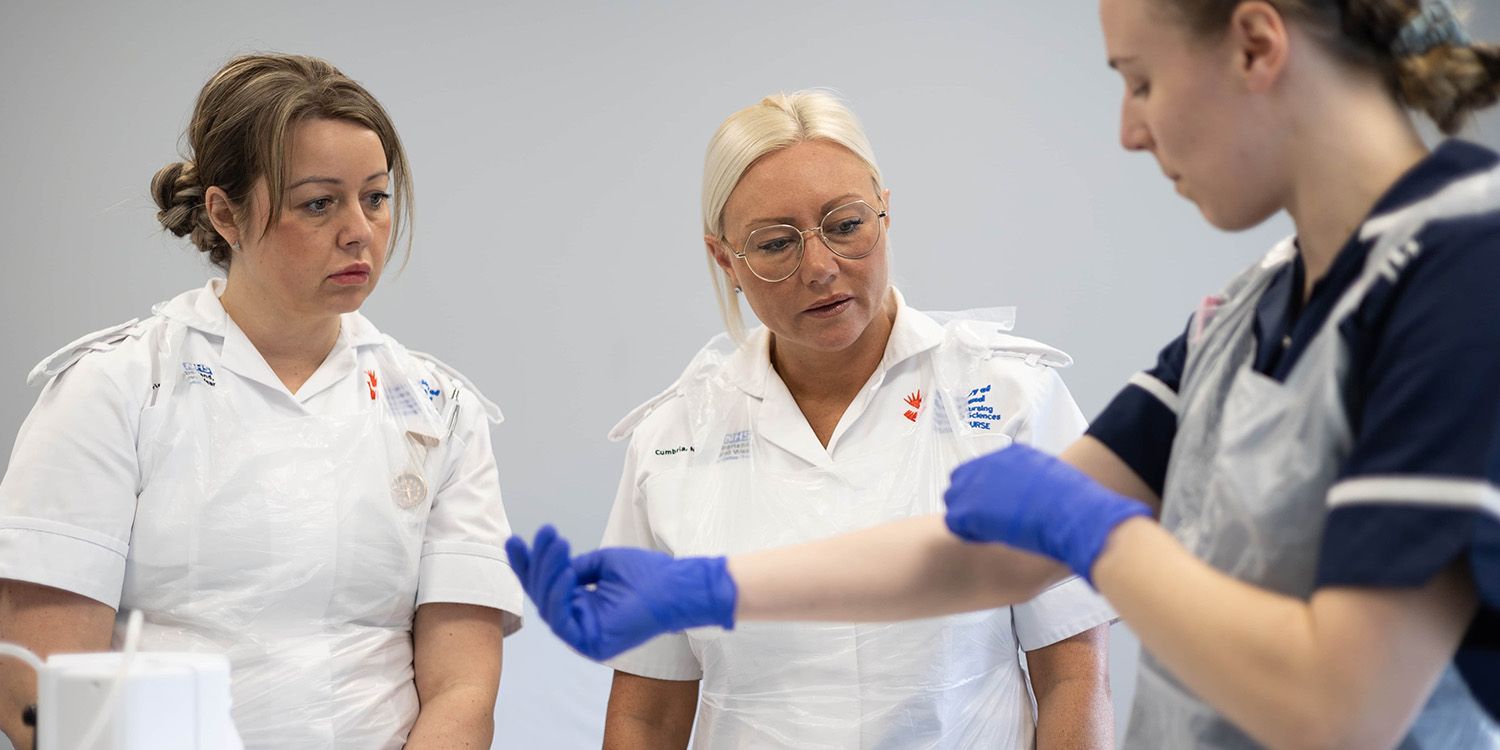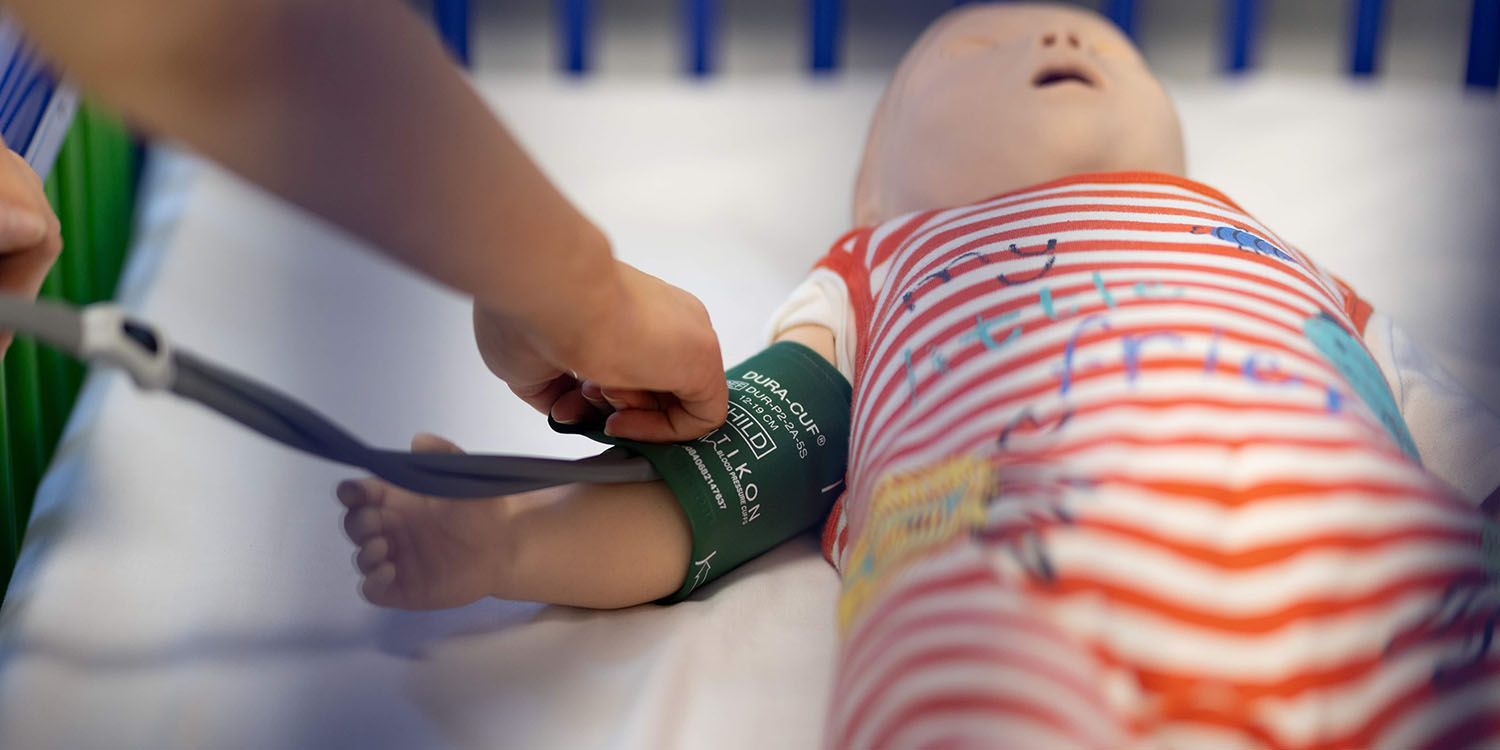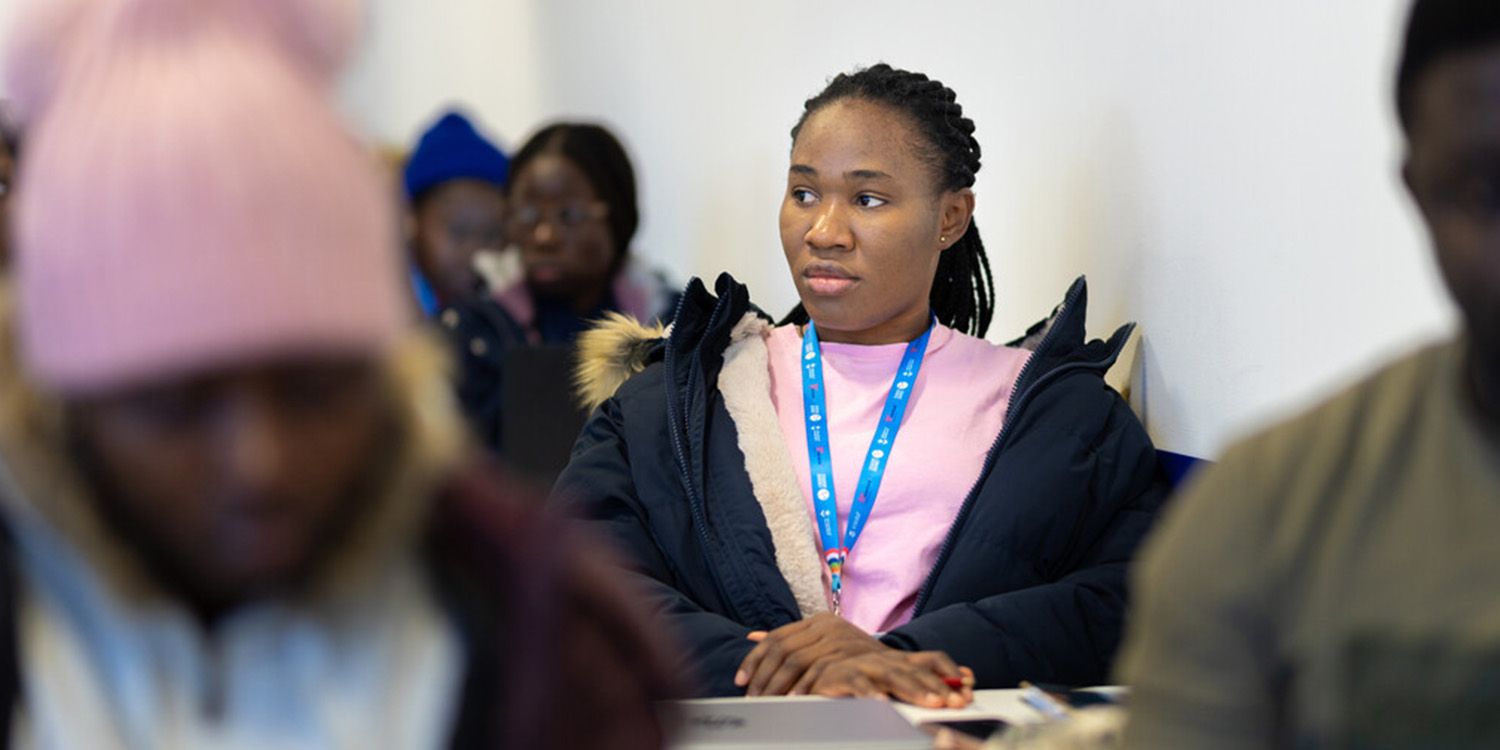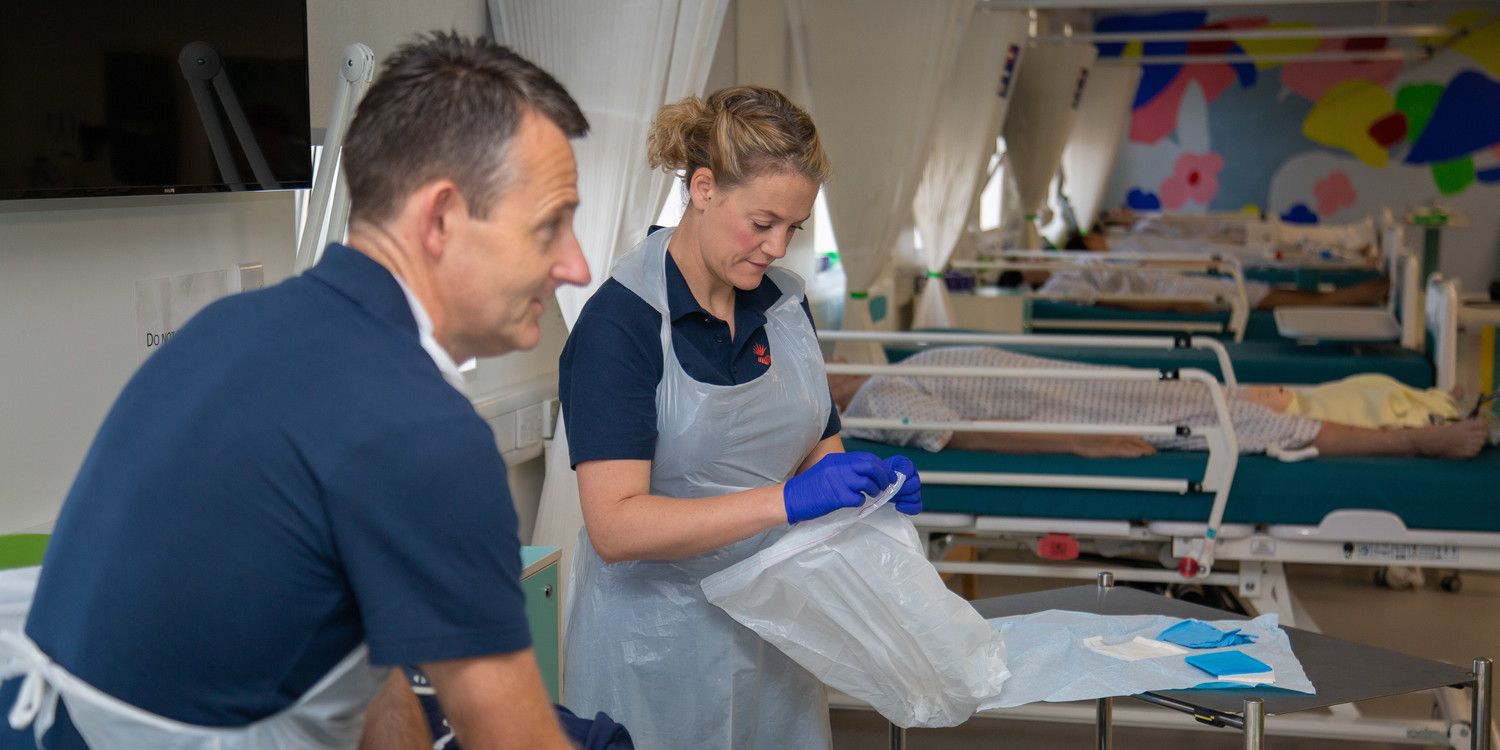Nursing and Midwifery placement information
Our Nursing and Midwifery courses include unpaid clinical placements hosted with the awarded NHS trust and wider community, which account for around 50% of the course. Find out more about what you can expect on placement.

What will I do on placement?
Our Nursing and Midwifery placements are a great opportunity for you to develop your skills and gain key insight into your chosen future profession as a nurse or midwife. Placements help you to transition into a professional working environment, supplementing the taught elements of your course. At all levels of your chosen Nursing or Midwifery course, you'll undertake unpaid clinical placements in both hospitals and the wider community.
Our placements are varied and aim to ensure you experience a range of healthcare areas such as community, acute, surgical, medical and specialist, such as cardiology or respiratory. Your placements can be taken in hospitals, schools, prisons, hospices and more. You're encouraged to be proactive in engaging with your placement team, undertaking the roles assigned to you with diligence and a commitment to always do your best.

How long will my placement be?
For our undergraduate courses, your first Nursing or Midwifery placement will take place in the first term after ten weeks of teaching. These occur in blocks of varying duration.
Placements for Adult Nursing, Mental Health Nursing, Children's and Young People's Nursing, and Midwifery consist of the following:
- Year 1: two nine-week placement blocks (18 weeks in total)
- Year 2: three seven-week placement blocks (21 weeks in total)
- Year 3: two placement blocks, one nine weeks, and the other 16 weeks (25 weeks in total).
For placements on the Adult Nursing (Blended), you'll work 25 hours per week and study seven and a half hours of theory. Each academic year varies in placement length:
- Year 1: two eight-week placement blocks (16 weeks in total)
- Year 2: three eight-week placement blocks (24 weeks in total)
- Year 3: three placement blocks, two of which are eight weeks and one of 16 weeks for the management placement (32 weeks total).
For placements on the MNurse (Adult), you'll work 37.5 hours per week. Each academic year varies in placement length:
- Year 1: three seven-week placement blocks (21 weeks in total)
- Year 2: three placement blocks, the first of which is nine weeks, the second five weeks and the management placement block12 weeks (26 weeks in total).
You'll have seven weeks' holiday per year, with two weeks off at Christmas. The remaining five are spread across the rest of the academic year. The timings of the holidays will vary over the three years and we do try, where possible, to align some of these to school holidays. You're unable to take holiday outside of these set times, but you'll be provided with a three year plan on enrolment.

How am I assigned a placement?
For most of our Nursing and Midwifery courses, we'll ask you during your interview to identify your preferred host Trust as well as two alternative choices based on the ones available through the NHS Trust. While we can't guarantee a host provider as this is dependent on capacity, we try our best to match you with your preferred choice.
You'll be allocated a ‘home’ Trust where most of your placement will occur, but you may be required to work at other Trusts.
Placements and your shifts are allocated at least four weeks prior to starting, but are often allocated sooner. All placements are managed through a Placement Electronic Platform, known as ARC. This platform contains feedback forms, information about the placement area, and profiles and contact details for the area staff and management. You can also access your timesheets via ARC from a desktop or laptop computer.

Where will my placement be?
We work with several host Trusts including South Tyneside and Sunderland NHS Foundation Trust, The Newcastle upon Tyne Hospitals NHS Foundation Trust, County Durham and Darlington NHS Foundation Trust, North Tees and Hartlepool NHS Foundation Trust, and Northumbria Healthcare NHS Foundation Trust.
Your placement will occur at your appointed host Trust (within various locations over the three years) and a standard working week is 37.5 hours. It's important to note that your placement may include a range of shift patterns, including early starts, evenings, weekends, and night duty. You'll follow the usual shift patterns of the placement provider, and this is non-negotiable. Shifts can last anywhere between 7-12 hours and cannot be fitted around school hours or holidays.
Some placements will require the ability to travel (up to a maximum of 90 minutes depending on transport mode) and some Trusts cover large geographical areas which must be considered as we can't promise placements close to home. Some community placements are restricted to car drivers and business insurance is required. Planning your travel to placement in advance is your own responsibility, and a bursary is available to those who are financially challenged. Read more about the NHS Learning Support Fund or get in touch with our Student Financial Guidance team.

How will I be supported on placement?
We want you to feel supported on placement to ensure a positive learning environment. You'll be encouraged to participate in all activities and follow journeys to offer additional learning and understanding. You'll have a Practice Assessor and Practice Supervisor who will act as a direct means of support and guidance. A Clinical Link Tutor from the University will also support you during your time on placement.
During your first year, you'll always be supervised, and supervision is managed as per student development and bespoke to your personal learning as the course progresses. By your third year, you'll manage responsibilities such as small patient groups, a ward area, or a community case load independently, but will still have support from the area staff.
At the end of every placement, we request student feedback which is available for all to see. We also audit all placements annually for quality.
Contact us
The Placements team are here to support students on their placement journeys and will always endeavour to provide the necessary support to ensure that it's a smooth, enjoyable and rewarding experience.
Where students experience personal issues that are likely to impact their study, and in turn their placements, they should speak to their Personal Tutor or Programme Leader as soon as possible. Where contact can't be made with them, they should contact the Placements team who will provide whatever reasonable support they can.
For further information, please contact the team on: fhsw.placements@sunderland.ac.uk